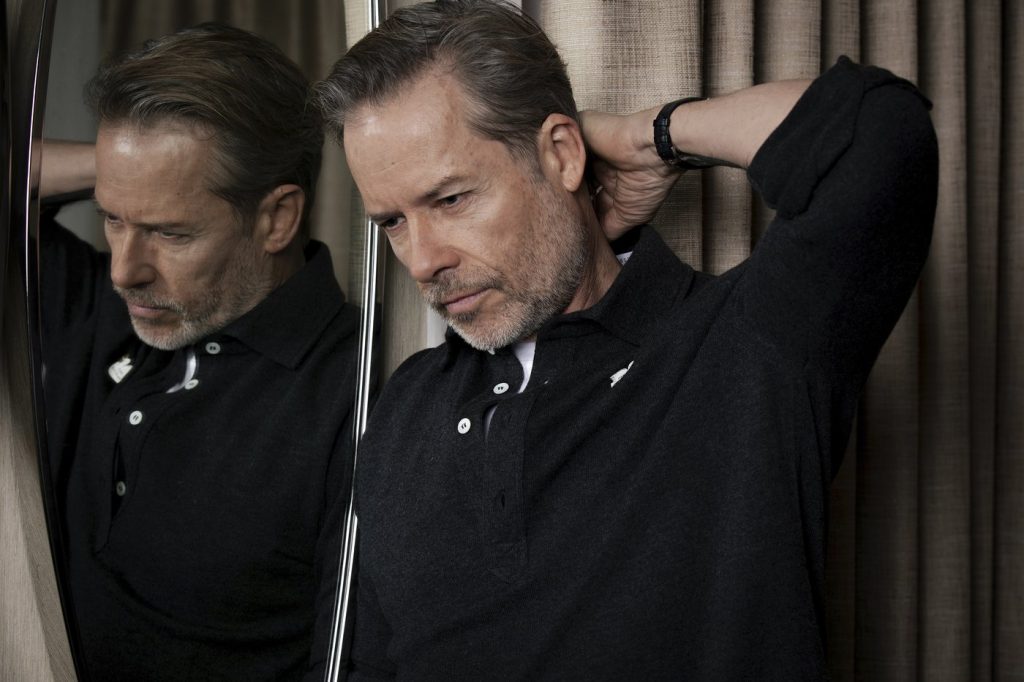NEW YORK (AP) – Over his illustrious career, Guy Pearce has consistently excelled, particularly in roles that showcase characters with polished façades hiding darker motivations. This thematic duality was evident in his breakthrough role as a morally conflicted police detective in “L.A. Confidential,” as well as in his portrayal of a sophisticated bachelor in “Mildred Pierce.” Most recently, he embodies a complex mid-Atlantic tycoon in “The Brutalist,” a performance that amplifies the film's unsettling narrative.
Pearce articulates a nuanced perception of humanity, stating, “Good people can do bad things and bad people can do good things.” This perspective adds depth to his characters, particularly those of elite status who reveal their intrinsic flaws. In “The Brutalist,” Pearce’s character, Harrison Lee Van Buren, exemplifies this duality. His relationships start with idealistic benevolence, particularly towards the impoverished Holocaust survivor László Tóth, played by Adrien Brody. However, as Van Buren's jealousy and privilege seep into their dynamic, a dark transformation occurs, culminating in a harrowing moment where he dehumanizes Tóth.
Pearce describes collaborating with director Brady Corbet, noting that Van Buren is not merely a caricature of avarice but rather a sophisticated individual who appreciates beauty and artistry. Despite his self-interest, Pearce believes this understanding of artistry makes Van Buren a more compelling antagonist. This layered performance has earned Pearce his first Oscar nomination at the age of 57, a recognition long overdue for someone noted for roles in “Memento,” “The Count of Monte Cristo,” and “The King's Speech.” However, while he appreciates the acknowledgment, Pearce maintains a humble demeanor, admitting discomfort with the limelight of Hollywood fame.
Reflecting on his craft, Pearce prioritizes genuine performance over accolades, stating, “I can genuinely say within myself I’ve done a good job. Equally, I know when I’ve done a (bad) job.” His ability to separate self-worth from public perception is evident and rooted in his commitment to authenticity in acting. Pearce acknowledges that a contextually strong film can elevate performances, and he finds assurance in being part of a project with inherent integrity.
As Van Buren, Pearce enters a realm of sophisticated villains akin to F. Murray Abraham’s Salieri in “Amadeus.” The character's creation draws inspiration from Corbet's and co-writer Mona Fastvold’s struggles with studio financiers during their previous project, “Vox Lux.” These real-life tensions inform the dynamic of control and power as portrayed in “The Brutalist.” Pearce's own experiences with film producers remain peripheral; he often downplays Hollywood's opulence, preferring to stay focused on his role.
Living in the Netherlands with partner Carice van Houten and their son, Pearce maintains a distance from Hollywood's bustle, engaging in conversations about topics like Australian rules football rather than the film industry. His light-hearted approach extends to his work, as he believes in the imaginative and playful nature of acting, which he began on the Australian soap opera “Neighbors” in the mid-’80s.
Pearce describes receiving the script for “The Brutalist” similarly to when Christopher Nolan approached him two decades prior. Both instances prompted him to revisiting the directors' previous works, resulting in an eagerness to collaborate. While delving into Van Buren’s character, Pearce leaned more on the script than personal experiences, with the character’s voice presenting one of the more significant challenges. To overcome this, he drew inspiration from his friendship with actor Danny Huston.
Throughout the making of “The Brutalist,” Pearce notes that he doesn't fully grasp the performance until after its completion. An illuminating example from filming involved a tense scene that ultimately revealed more about Van Buren than he intended. He reflects, “I was purely telling myself,” which underscores the character’s internal conflicts.
Ironically, Van Buren’s compelling need for control contrasts sharply with Pearce’s own relaxed and less domineering approach to acting. As Pearce elaborates, Van Buren’s performative nature drains him while striving for dominance and charm, highlighting the complexity of inhabiting such a character.










